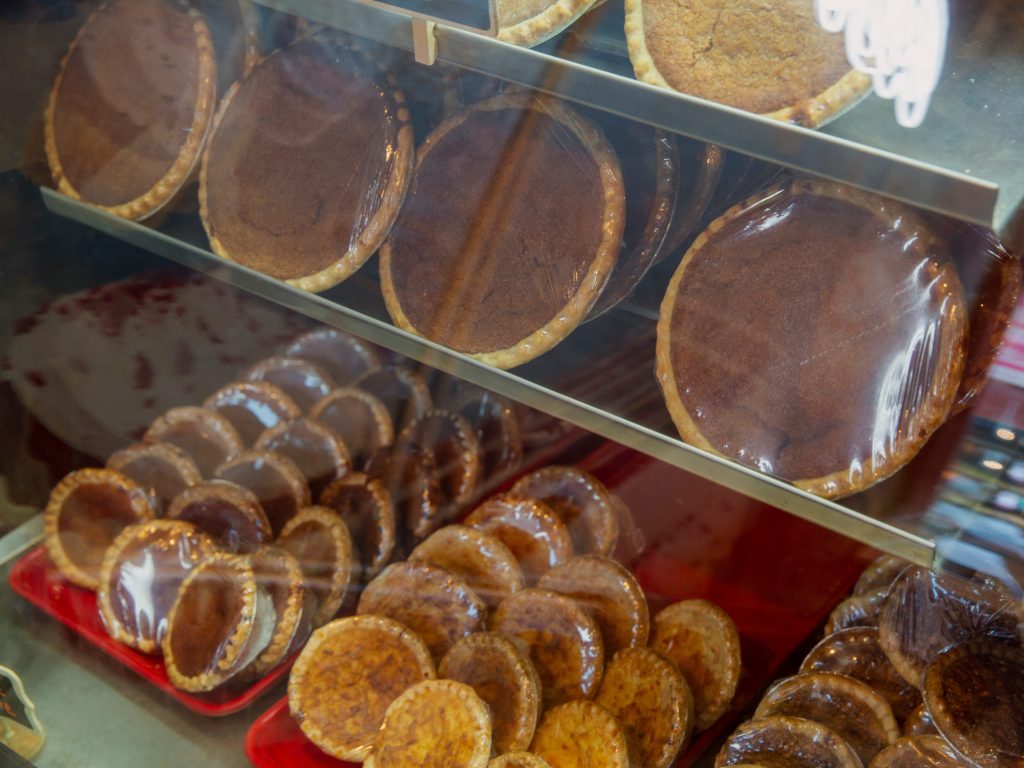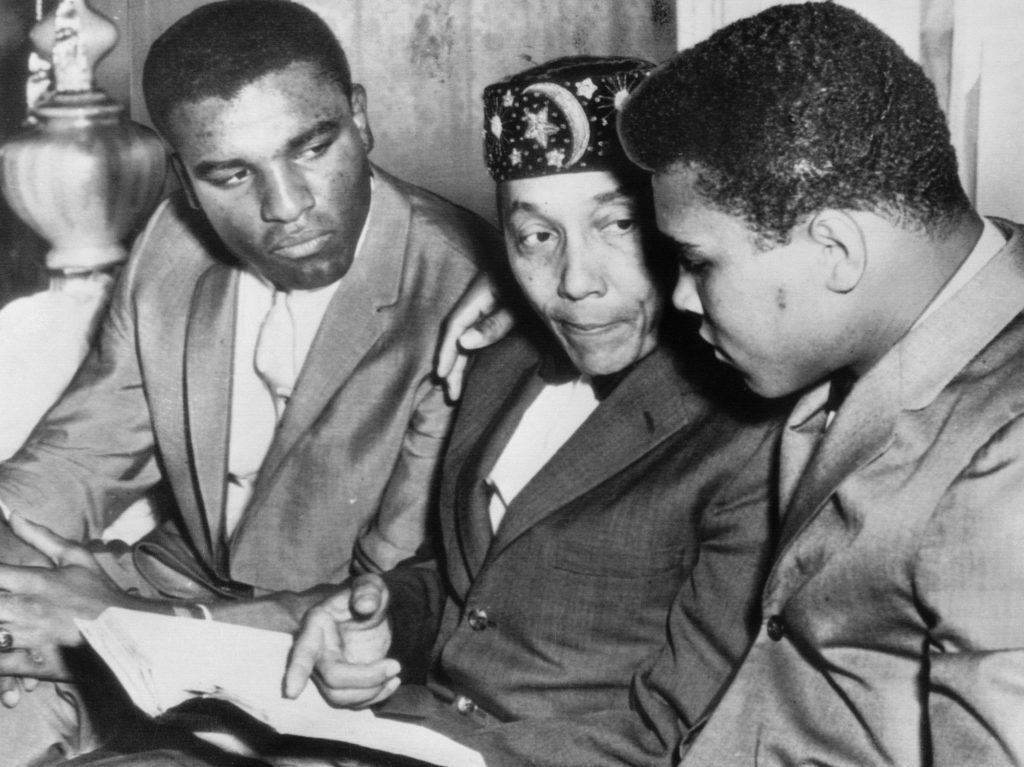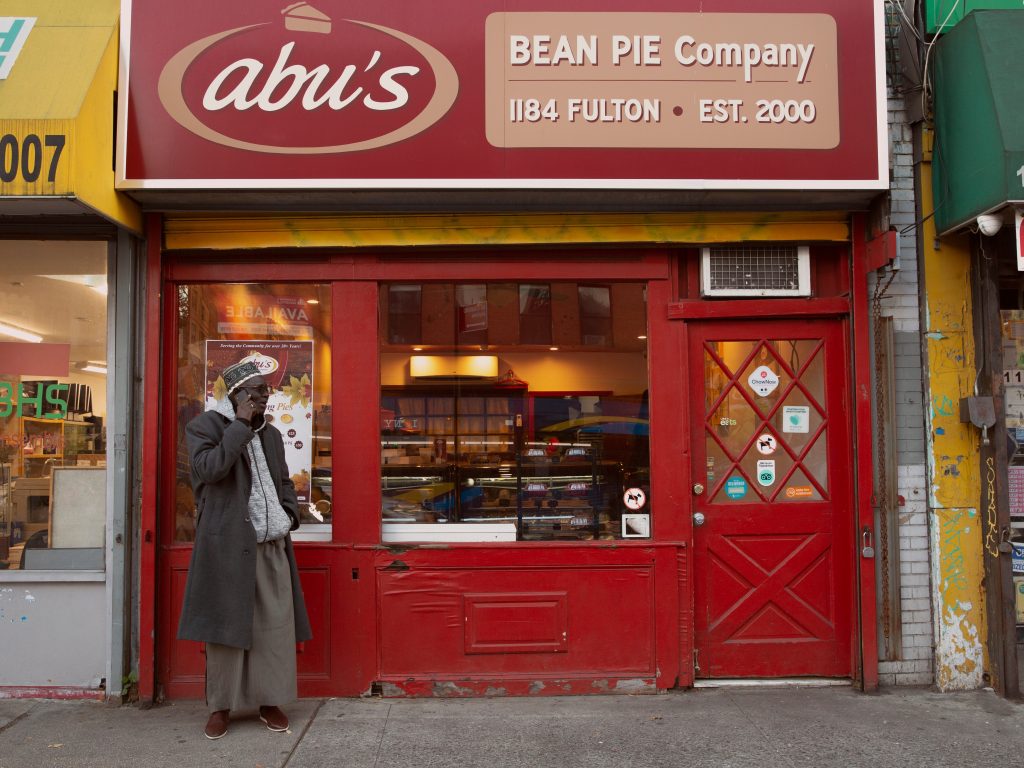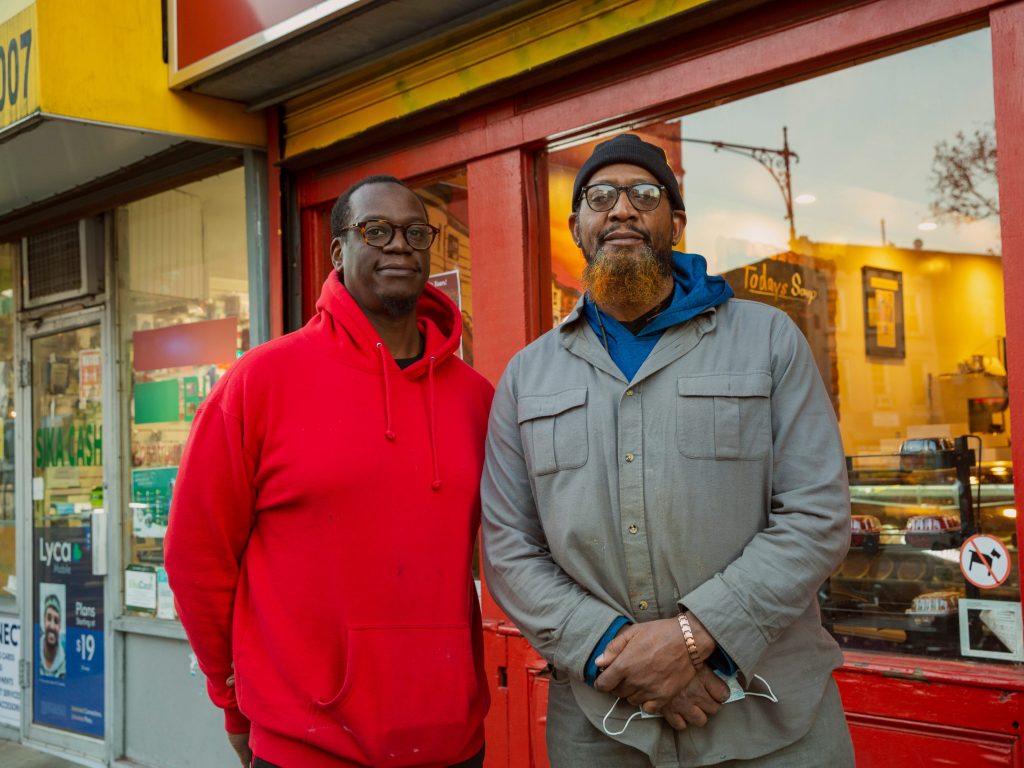- The navy bean pie was originally rooted in the controversial Nation of Islam, a Black nationalist and social-reform movement.
- The pie was a favorite of boxer Muhammad Ali.
- Small bakeries like Abu's in Brooklyn have brought the bean pie to the larger Black Muslim community.
When Muhammad Ali lost The Fight of the Century against Joe Frazier on March 8, 1971, he blamed his defeat not on skill or luck, but on the bean pie.
Ali had been unable to resist slices of the custard pie — thickened with navy beans and laced with cinnamon and vanilla — during his training, his personal chef Lana Shabazz wrote in her cookbook, "Cooking for the Champ."
The bean pie rose to prominence with the Nation of Islam, a Black nationalist and social reform movement founded in 1930 that has stirred controversy for its anti-Semitic and anti-LGBTQ positions. (Ali was initially affiliated with the group before disavowing it and turning to Sunni Islam.) But the dish has since been adopted by the broader Black Muslim community in America.
In Brooklyn's Bedford-Stuyvesant neighborhood, just around the corner from the mosque Masjid At-Taqwa, is Abu's, an unassuming bakery with a maroon sign and a crimson door. Abu's, the sign says, is the "bean pie company."
Idris Conry, a Sunni Muslim and Brooklyn native with entrepreneurial verve, started Abu's in 2000 after selling popcorn and cotton candy at local fairs and basketball games. He named the bakery after the Arabic word for "father." Conry's sons, Idris and Muhammed, have helped out at the store since a young age, washing "a thousand pans" as kids, Muhammed told Insider.

Conry learned the bean pie recipe from a Muslim sister who used to be a follower of the Nation of Islam. Conry turned the pie, rich with a history of self-determinism for Black Americans, into something available to the broader population.
Navy beans were prescribed as a form of Black sovereignty
Founded on beliefs of Black nationalism and separatism, the Nation of Islam represented a profound shift from the more collaborative civil rights philosophies of leaders like Martin Luther King Jr. The Nation, led by controversial figures like Malcolm X and Elijah Muhammad, instead advocated for a new Black identity free from the legacies of enslavement.
In addition to practices like replacing surnames given by slave owners with "X," the Nation sought to forge a food culture and identity that was distinct from foods associated with slavery, like sweet potatoes, according to historian and educator Zaheer Ali.
"By the 1960s, the pies — and navy beans as a food staple — were part of a broader effort by the Nation of Islam to achieve food sovereignty for Black America," Ali said.

Elijah Muhammad, who led the Nation from 1934 until his death in 1975, outlined his dietary prescriptions in his two-book series, "How to Eat to Live." Muhammad emphasized vegetarianism and limiting sugar, processed grains, and traditional soul food ingredients like corn, collard greens, and pork. In his books, Muhammad writes that Allah especially valued small navy beans, "the little brown pink ones, and the white ones," as "very high in protein, fats, and starches, and it is a safe food for prolonging life" up to 240 years.
The Nation's religious dietary laws weren't just divinely recommended, but also "expressions of cultural self-determination and a means of generating economic activity," Ali told Insider.
"The bean pie was introduced as a shift away from what was considered a diet originating in slavery, and proved to be a popular commodity for businesses and fundraisers," Ali said.
The bean pie as uniquely American
The Masjid At-Taqwa, the mosque just steps away from Abu's, was founded by former members of the Nation who left to practice a more traditional brand of Islam. Conry attended the mosque, and fellow adherents of the congregation flock to Abu's for his bean pie.

"The bakery has the atmosphere of people coming in from all over, talking about music, talking about politics, talking about this and that," Muhammed Conry said. "It's the community get-together spot, the hangout spot."
The bean pie was typically not sold in stores, but mom-and-pop bakeries like Abu's have sought to popularize it among a broader community.
"We say it's as American as apple pie. It's created by an African American community in America, so where else could its origins be?" Muhammed said.

